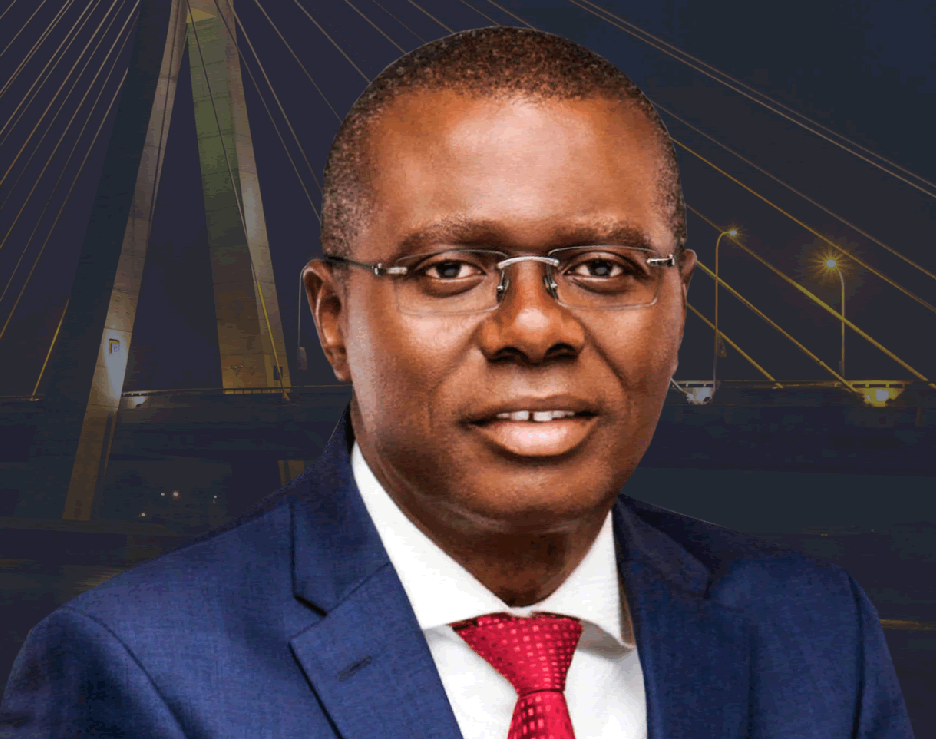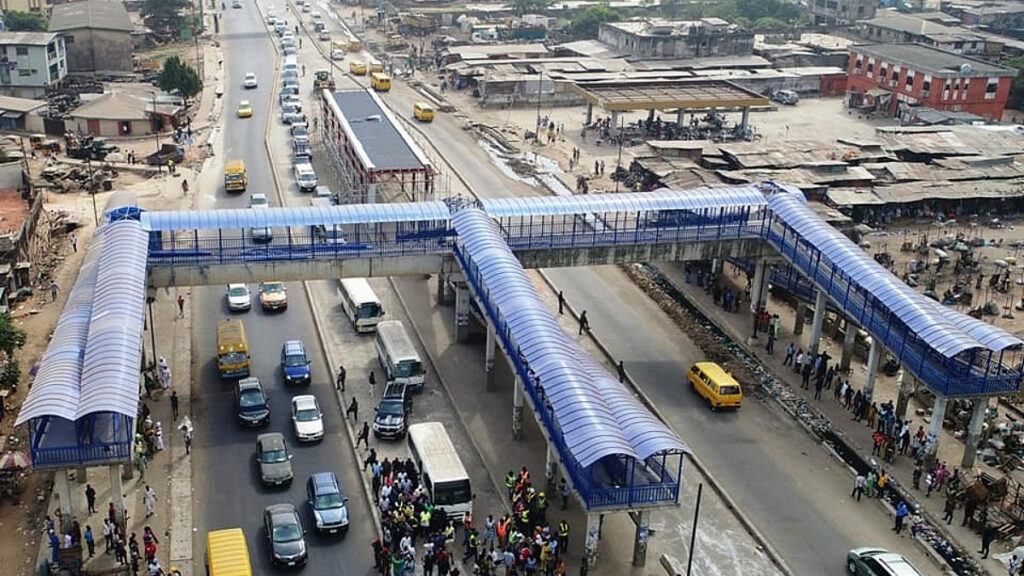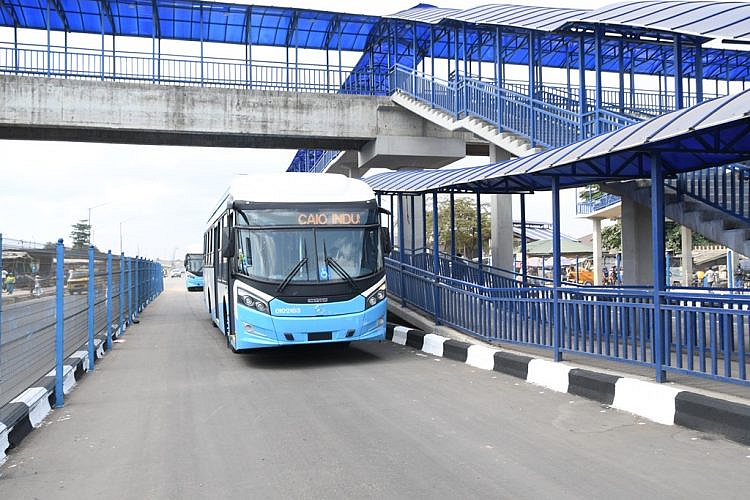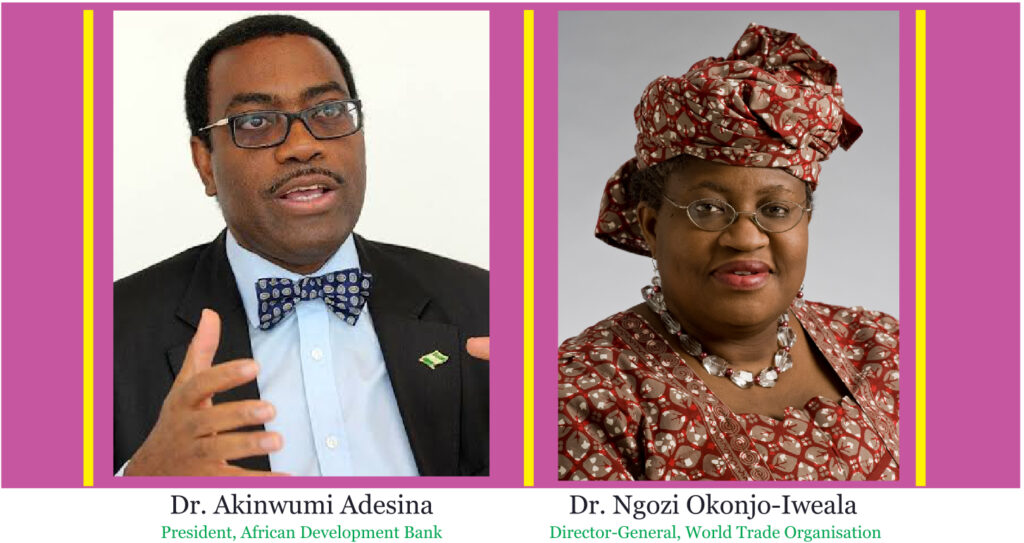Criticisms from opposing camps have surprisingly not as strong as it has always been with the struggle for Lagos. Could this be an indication that Mr Babajide Sanwo-Olu administration’s quest for a Greater Lagos is resonating generally with highly-conscious people of Lagos, without political border? The picture on ground is truly grandiose, triggering a new wave of enthusiasm amongst natives and visitors alike. This city-state of Lagos with political juggernauts on both sides of major political divide, is unusually devoid of heavy political bickering and acrimony among the contending Political Parties.
On a closer look, we saw a clear picture different from the usual inaction after beautiful campaign; for which, in recent times, Nigeria political class is notorious and which is seen in a number of states. Though the kick-off was rough and tedious, it appeared then as if the THEME may produce no steam at all. This is against the background of disjointed system marked with heaps of refuse ‘decorating’ the streets of Lagos, chaotic traffic situation and collapsed public works ,with resultant bad roads, inherited by Sanwo-Olu’s administration.
It was in the midst of this confusion, compounded by outpouring of water from heavens, that Governor Sanwo-Olu hit the ground with his first Executive Order. This was to give Lagosians a refreshing motoring experience devoid of wasted man-hours on roads, remove heaps of refuse littering the nooks and cranny of the State, ensure quick intervention on the situation of roads and guarantee a healthy environment. Not too long after this, we started to witness slow but strategic rehabilitation of major roads across the State. This after some time ‘got the approval of heavens’ as the rain subsided and the velocity of actions increased and this brought relieve to road users in some areas; while government kept on its advocacy and plea for patience.
The works on Lagos-Badagry Expressway, which was left unattended, was brought alive as the contractors handling road
construction work returned to site. Indeed, the first phase of the project from Mile 2 to the old Volkswagens area was speedily concluded and commissioned for public use. The series of quick interventions made by the Sanwo-Olu’s administration in the area of environmental regeneration brought noticeable improvement.

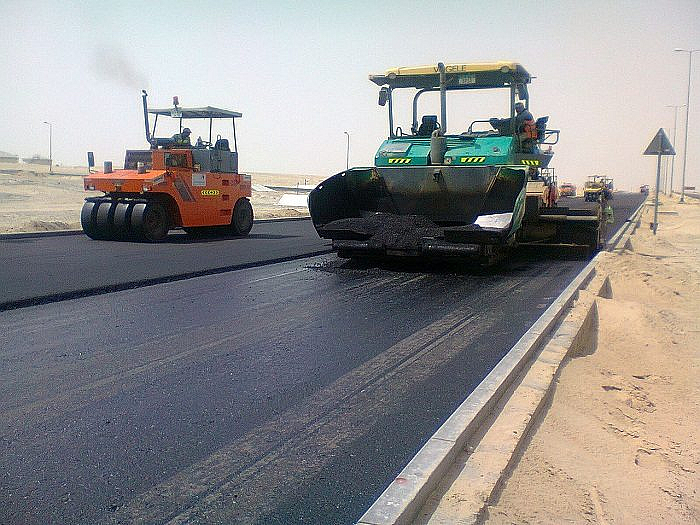
PUBLIC WORKS IN ACTION
In terms of public health, the administration embarked on massive investment in the health sector. This is evident in the Free Medical Mission for children and adults; carried out across the state. Through this initiative, children and adults were screened across seven centres for six days, while free surgeries were conducted for residents.
These include pediatric eye surgery, adult eye surgery, pediatric surgery, dental surgery, orthopedic surgery and ENT (Ear, Nose and Throat) surgery. There was also another free surgical intervention programme

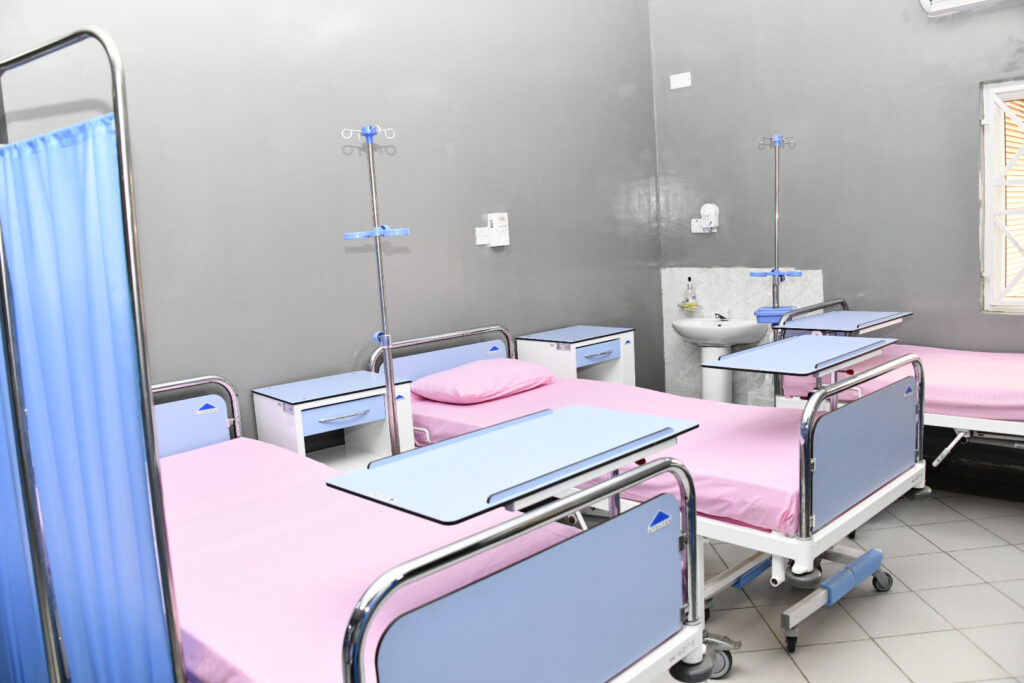
Lagos Modern Health Facilities 1 
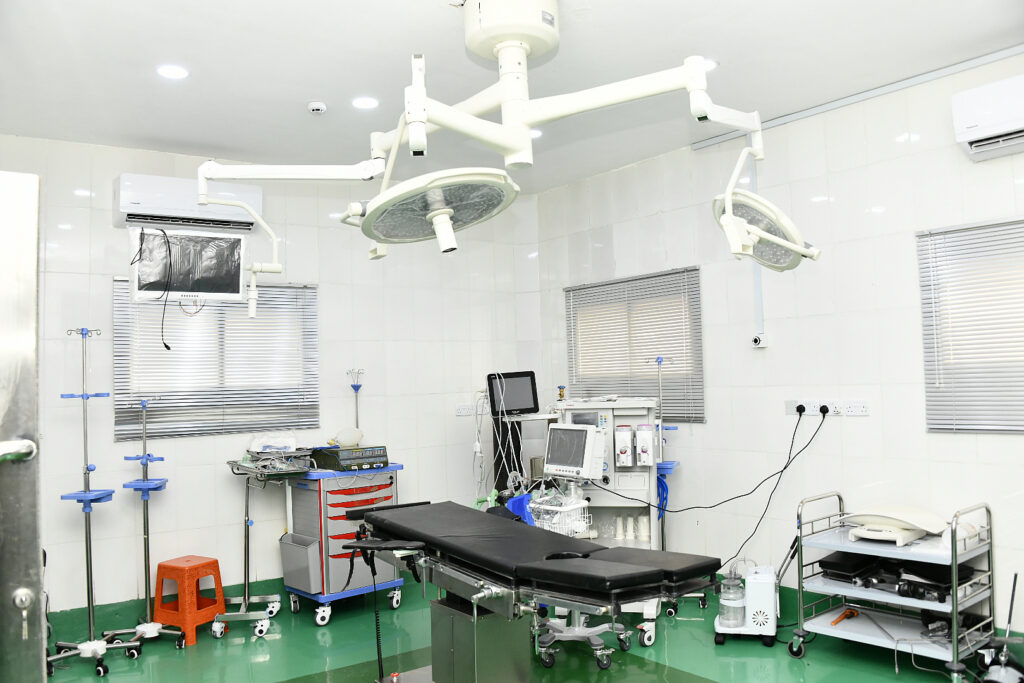
Lagos Modern Health Facilities 2
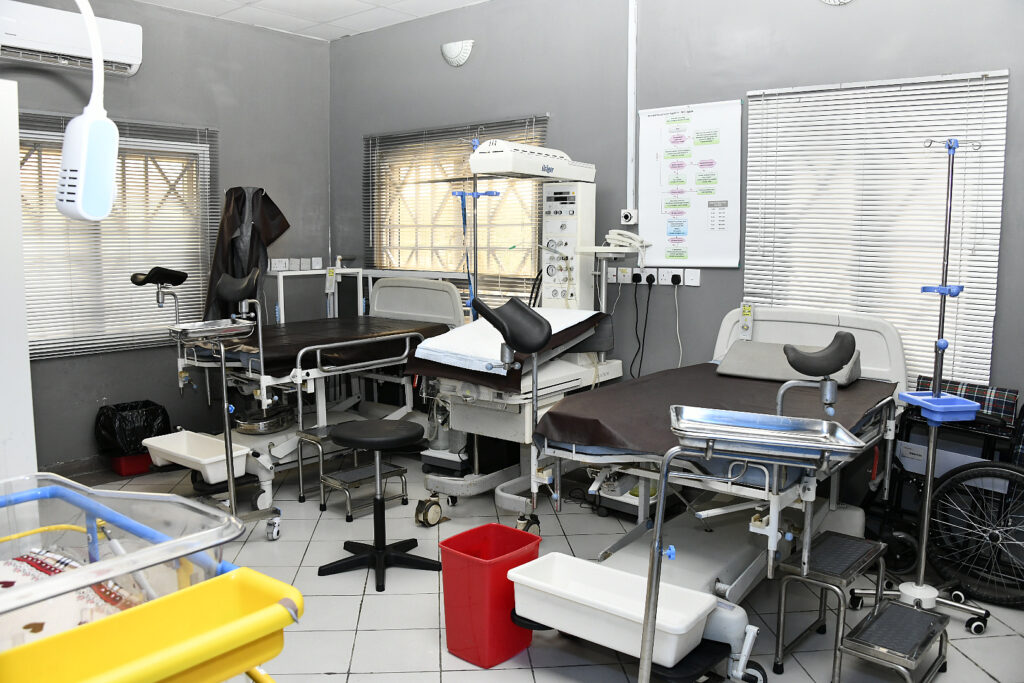

for residents, organized in partnership with a Non-Governmental Organisation (NGO), Benjamin Olowojebutu Foundation. It comprised free dental and general health surgeries for residents suffering screening from Lipoma, Hernia, Fibroid and Breast Lumps.
By the and said, “Good people of Lagos, in my inauguration address, I promised you a ‘Greater Lagos.’ of his first Today, on the first anniversary of year in office, that inauguration, it is my pleasure it was clear to brief you about the progress we that the ship have made in the journey towards a has gained ‘Greater Lagos,’ using the full stability THEMES Agenda as our vehicle.” and an elated.
He touched on completion of the captain of the elevated sea-crossing track of the ship, Mr. Blue Line Mass Transit Project, at Babajide Marina, shortlisting of eight firms Sanwo-01u for the construction of the 4th faced the Mainland Bridge, massive joy full.
1 rehabilitation of roads, including Lagosians the Oshodi-Abule-EgbaBRT Corridor, the Lagos-Badagry Expressway, the Agric-Ishawo Road and the four junctions’ improvement projects at Allen Avenue, Maryland, Ikotun and Lekki.
The government also delivered Intelligent Transportation System (ITS) at the Ikeja and Oshodi Bus Terminals. Also delivered were several BRT Corridors and terminals, street roads and highway rehabilitations were done statewide, all totaling 31 projects.
in all.
Talking about Lekki Deep Seaport project, Governor Sanwo-Olu explained that “the Greater Lagos” we promised you is a Megacity that is fully and confidently a 21st century economy. This is the thinking that has propelled us to sign a $629 million financing facility aimed at completing the Lekki Deep Seaport project. When that project is completed, Lagos will have one of the most modern and capable Ports not just in Africa but in the world.

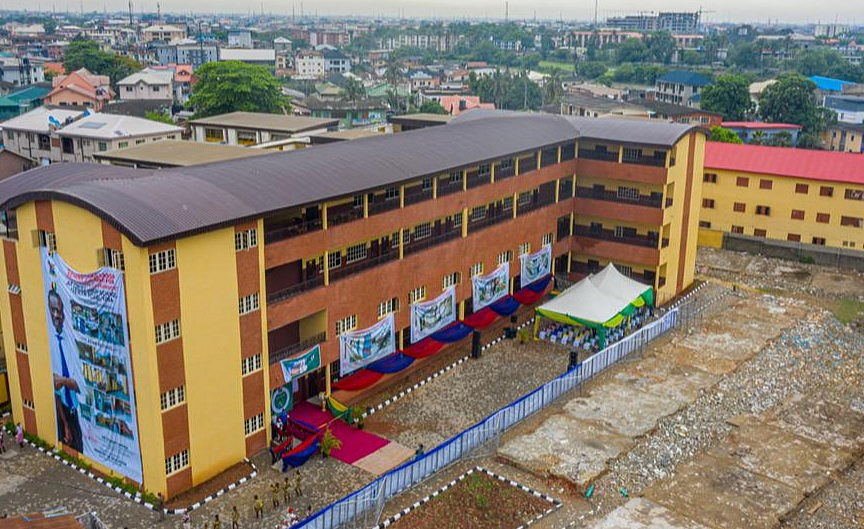
One of the Lagos Model Schools
In education, the revamping and upgrading of schools started with 90 school blocks. There is abundant evidence of strong
teaching and learning infrastructures to make them compliant with 21st century demands. In the first phase, 350 schools were overhauled, while many public schools’ teachers were sent on capacity building training to enhance their skills. New teachers were also recruited to increase the number of teaching personnel, especially in some core subjects, in the public schools 2,000 Primary School Teachers and 1,000 Secondary School Teachers.
The Administration also commenced Improved Capacity and Welfare of School Personnel with N7 .8m disbursed to School Teachers as car refurbishment loans, N3m was also disbursed to Teachers as Housing Loans. A Public-Private Partnership (PPP)-Dialogue on education was organized. This was aimed at accruing collaboration towards improved quality of Education in commitment to educational development in Sanwo-Olu Administration’s strategic Action Plan for ‘Greater Lagos. The Lagos State Students were engaged during the School closure caused by Covid-19 Pandemic.
The State organized electronic learning and teaching platforms through radio, television, and the internet media. On line seminar were developed for teachers to enhance their 21st century capacity and capability. The Home-Grown School Feeding Programme was implemented with 135,445 pupils fed daily across 976 Public Primary Schools.
Highly substantial inputs have been made to improve quality of Primary Education in the State. Two new buses including Office equipment were provided for Quality Assurance Officers for monitoring of primary schools. Public Primary School Vocational Centers received equipment and consumables such as Office Equipment, Arts & Crafts Materials, Generators, committee set up by the Administration quickly came up with dossier for rehabilitation of school buildings and upgrading of Fridges, Sewing Machines and some other facilities.
Over 18,000 Secondary School Teachers trained in digital literacy by Microsoft. At the secondary level, Libraries and ICT centers were renovated in Secondary Schools across the State Education Districts. Secondary School Teachers trained in Scenario planning based on Remote learning teaching classroom coordination post Covid-19 measures. At the tertiary level, through the State Scholarship Board, the sum of N253m was paid as bursary awards for 8,246 beneficiaries and another sum of NGN l90m was paid as scholarship awards to 845 beneficiaries. History was made as a major deal that will see the Lagos State University, LASU, becoming a residential institution was sealed with some private developers.

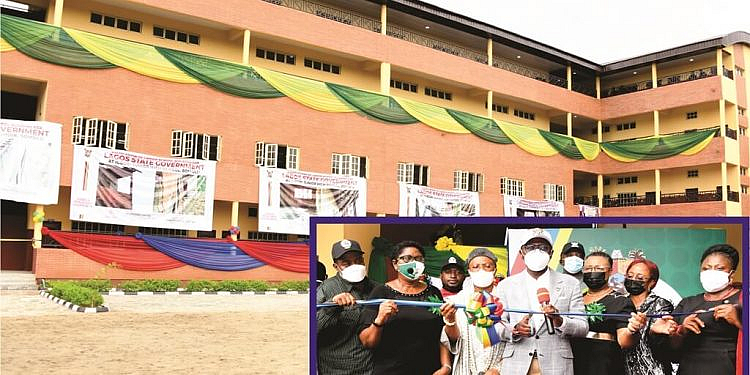
Lagos Model School
With the above achievements and delivery of the Agege Pen Cinema Bridge and roads in that axis, there is no doubt that Mr. Babajide Sanwo-Olu’s administration has erected clear pathways to sustainable development in all facets as a Great Leap towards Greater Lagos.

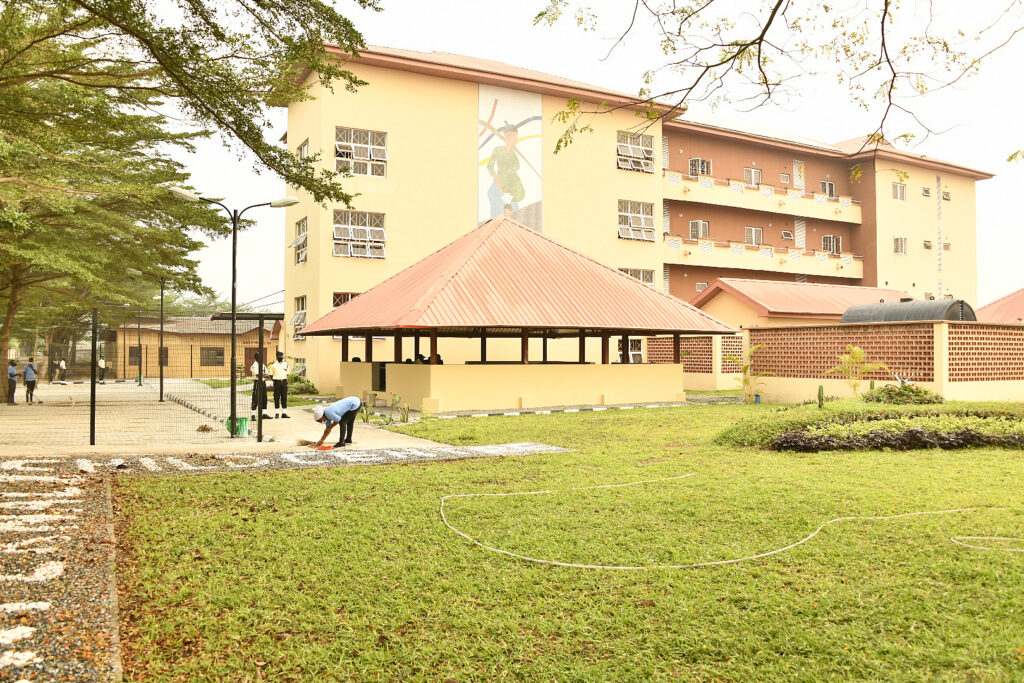
MATERNAL AND CHILD CENTRE, BADAGRY GENERAL HOSPITAL
Within the purview of this second anniversary of his administration and realizing that about 95 percent of Nigerians are still not covered by the Nation’s health insurance scheme and are unable to access affordable quality healthcare delivery, the Administration of Mr. Babajide Sanwo-Olu has launched ‘Ilera Eko’ to achieve universal health coverage for all Lagosians by the end of this year 2021.
As we celebrate the second year of Sawo-Olu’s administration, it is gratifying to know that the T.H.E.M.E.S Agenda, acronym for Traffic Management and Transportation, Health and Environment, Education and Technology, Making Lagos a 21st Century Economy, Entertainment and Tourism and Security and Governance, which is the strategic launch pad for a Greater Lagos was a major agenda of the 8th Lagos Economic Summit, otherwise known as ‘Ehingbeti,’ a three-day meeting facilitated by the Organized Private Sector.
With 146 speakers, over 15,000 registrants and 6000 participants from across the globe, the Summit had examined six thematic areas of importance including: destination Lagos: shaping-up as world best investment destination; strengthening governance institutions and legislations; Fourth Industrial Revolutions: imperative and prospect for a decent economy; roadmap for a shared economy: ensuring inclusive human capital development; funding growth sustainably and sustainability resilience and impact.”
Governor Sanwo-Olu was upbeat, exuding an infectious optimism that showed in his every move. It was not a surprise therefore that he eventually received, on a platter, what you could call a people-wide endorsement – the stakeholders passed eleven resolutions for joint execution of the public and private sector in the quest to build Greater Lagos.
He has repeatedly admonished on the grand nature of the project, but much more, the value that it would bring to the State. A network of 6,000-kilometre of fiber optic infrastructure, a wide network of colour-coded Metro Lines that would be moving over 34.5 million people monthly and cutting travel time by over 250 per cent, a network of intelligent cameras, largest rice mills in the world, medical park and millions of direct jobs for skilled youths and empowerment of women, are all in the bargain.
Sanwo-Olu told the forum the race to digitize every community in Lagos had begun with the ongoing laying of the fibre optic infrastructure across the city, the idea being to leverage technology to revolutionize business. “In 2030, Lagos will proudly stand beside every other megacity in the world in terms of its capacity to transport its people efficiently and responsively.
“The Smart City that is unfolding will also be home to a network of intelligent cameras that will support, not only security and policing across the State, but also traffic management and data collection for urban planning. By 2030, Lagos will be home to one of the largest Rice Mills in the world, after we deliver our 32 metric tons per hour rice factory in Imota, which will produce 2.8 million bags of 50kg bags of rice per annum.”
For a forum that attracted the attention and attendance, virtually, of those critical to the delivery of the grand Greater Lagos project, it was a grand opportunity to woo all and sundry which Sanwo-Olu made best use.
He succeeded in wooing President Muhammadu Buhari, the Director General of the World Trade Organisation (WTO); Dr. Ngozi Okonjo-Iweala, President of the African Development Bank (AfDB); Dr. Akinwunmi Adesina, as well as that of the founder of Mo Ibrahim Foundation; Mr. Mohammed Ibrahim, amidst a sea of other experts and technocrats. President Buhari’s pledge was a continued Federal Government’s massive investments into Lagos in order to boost the State’s economic potential as one of the world’s fastest growing megacities.
He also gave accolades to the State for demonstrating understanding of how to relate with national government to the advantage of the citizens citing the concession granted the State Government to rebuild the federal highway leading to Murtala International Airport in Ikeja.
“The Federal Government is today completing the Standard Gauge Railway Line that links Lagos to Ibadan in the first instance, and from there connects to Abuja and Kano, and brings ease and efficiency to what is Nigeria’s busiest transportation corridor. “Just last month, this new Rail Line achieved a milestone extension into the Port Complex in Apapa setting the stage for a long overdue decongestion in that area.”

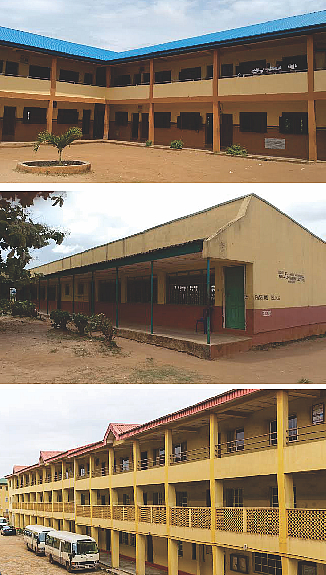
LAGOS MODEL SCHOOLS
At her tum, the WTO Director General; Dr. Okonjo-Iweala advocated the creation of massive industrial hubs to harness the potential of the youth and women in artificial intelligence and digital economy, while she commended the Lagos Government’s action to build digital infrastructure around the city, noting that the fibre optic programme makes the State a new manufacturing hub of digital products.
This, she was optimistic, would shape the global economy in the next decade. “The future of Lagos must be knowledge-based and the State Government must sustain its investment in education to produce knowledgeable, skilled young people for the jobs of the future,” the AfDB President Dr. Akinwunmi Adesina counselled. Governor Sanwo-Olu’s visionary approach in this regard was clearly seen in the report of one of his media chats, where he explained among others that: “Education and technology is the third pillar of our THEMES Agenda.
In technology, we are building the backbone for what we call metropolitan fiber optics. We are building 3,000 kilometres of fibers around Lagos.
We have done 1,800 kilometers as we speak now. By June 29, I would be commissioning direct fibers in 100 schools. We would have connectivity to all of our hospitals. We are building the backbone for our private sector to come in; MTN, 9Mobile, Airtel for them to be able to deploy their last mile in one year from today, we have given them the capability.
We have two sub-marines that are going to land in the next three to four months we are giving them the capacity to be able to do it. Data and fiber is the next hub. So, Lagos is getting ready for that. On top of that, he added that: “We are building a security system. We have deployed over 150 cameras, which we are going to launch by June 29. We are going to 2,000 cameras. In education, today we have delivered about 250,000 new benches and chairs to schools.”
According to the Governor, the administration has added about 300 new classrooms to all schools and for the first time in 15 years, they are building three new schools from the scratch, renovated 96 primary schools; we are not leaving it to State Universal Basic Education (SUBEB)and we are not saying because it is with Federal Government or Universal Basic Education Commission (UBEC). We are doing it directly with them.
The administration has also improved admission and bed spaces in model schools with about 2,000 new bed spaces built for model schools to enhance boarding facilities.


